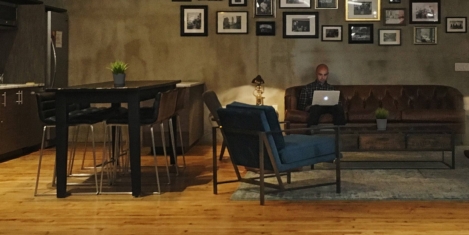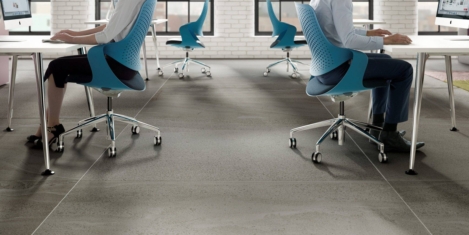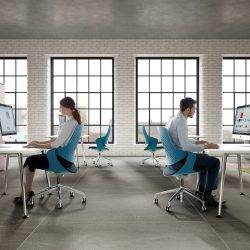June 12, 2017
What will the UK General Election mean for the workplace? Some experts respond 0
 Any residual feelings of certainty that anybody in the UK may have had about the country’s future following last year’s Brexit vote, will have had them pretty much eradicated by last Thursday’s General Election result. However, we must try to make sense of things for society and the wider economy as well as specific facets of it, such as the world of work. The whole thing looks like the pig’s ear that it is, of course. Fortunately, as some experts have already argued, there are some reasons to see some positive outcomes, including a soft (or softer) Brexit and the chance of a more positive approach to workplace rights, now that the Government needs to maintain a broader consensus. The fear or hope that the UK would lighten its already soft touch approach to workplace legislation would seem at least to be less well founded.
Any residual feelings of certainty that anybody in the UK may have had about the country’s future following last year’s Brexit vote, will have had them pretty much eradicated by last Thursday’s General Election result. However, we must try to make sense of things for society and the wider economy as well as specific facets of it, such as the world of work. The whole thing looks like the pig’s ear that it is, of course. Fortunately, as some experts have already argued, there are some reasons to see some positive outcomes, including a soft (or softer) Brexit and the chance of a more positive approach to workplace rights, now that the Government needs to maintain a broader consensus. The fear or hope that the UK would lighten its already soft touch approach to workplace legislation would seem at least to be less well founded.





 Most FMs would tell you that the state of the workplace toilets is often one of the main determinants by occupants on how well the facilities department is doing its job. So it’s disturbing to learn that according to a new survey a significant number of employees have cause to complain about the state of their workplace toilet facilities. The research, carried out by the Association of Plumbing & Heating Contractors claims that 16.5 percent of people are unhappy at work due to the condition of their employer’s toilets which is having a negative impact on their levels of engagement. Their research found 43.8 percent of the people surveyed felt their workplace toilets needed to be better maintained. And when asked if their workplace toilets require updating or refurbishing, 44.4 percent said they did. London seemingly has the worst workplace toilets with 50.9 percent of workers surveyed believing they need to be better maintained and require refurbishing.
Most FMs would tell you that the state of the workplace toilets is often one of the main determinants by occupants on how well the facilities department is doing its job. So it’s disturbing to learn that according to a new survey a significant number of employees have cause to complain about the state of their workplace toilet facilities. The research, carried out by the Association of Plumbing & Heating Contractors claims that 16.5 percent of people are unhappy at work due to the condition of their employer’s toilets which is having a negative impact on their levels of engagement. Their research found 43.8 percent of the people surveyed felt their workplace toilets needed to be better maintained. And when asked if their workplace toilets require updating or refurbishing, 44.4 percent said they did. London seemingly has the worst workplace toilets with 50.9 percent of workers surveyed believing they need to be better maintained and require refurbishing.


 Issues with the quality of their workplace lighting frustrate the majority (83 percent) of UK office workers; while 80 percent experience negative symptoms due to poor lighting a new study suggests. The survey by Lutron Electronics focused on key areas including the impact of lighting on mood and wellbeing and whether workers had personal control of their lights or were subject to standard lighting control settings across the office. Understandably, 88 percent of UK respondents said that their office lighting is important or very important and one third (32 percent) stated that their existing workplace lighting aids them in the accuracy and visibility of their work. In addition, 27 percent believe it allows them to focus more while 25 percent said it increases their general wellbeing. However, 35 percent of overall respondents said their existing office lighting does not have any positive impact on them at work. This figure is even higher (44 percent) among those in large companies with more than 5,000 employees and amongst the most senior generation (55+), where it reached more than half (51 percent).
Issues with the quality of their workplace lighting frustrate the majority (83 percent) of UK office workers; while 80 percent experience negative symptoms due to poor lighting a new study suggests. The survey by Lutron Electronics focused on key areas including the impact of lighting on mood and wellbeing and whether workers had personal control of their lights or were subject to standard lighting control settings across the office. Understandably, 88 percent of UK respondents said that their office lighting is important or very important and one third (32 percent) stated that their existing workplace lighting aids them in the accuracy and visibility of their work. In addition, 27 percent believe it allows them to focus more while 25 percent said it increases their general wellbeing. However, 35 percent of overall respondents said their existing office lighting does not have any positive impact on them at work. This figure is even higher (44 percent) among those in large companies with more than 5,000 employees and amongst the most senior generation (55+), where it reached more than half (51 percent).






 Less stress and better workplace relationships are the reason why the happiest regions to work in the UK are Yorkshire and the Humber; while uninteresting work is the reason why employees in Scotland and the South are the most unhappy. Research into
Less stress and better workplace relationships are the reason why the happiest regions to work in the UK are Yorkshire and the Humber; while uninteresting work is the reason why employees in Scotland and the South are the most unhappy. Research into 


 The UK economy is about to be hit by a fall in basic pay awards and real wages warns the CIPD, which has found that employers’ median basic pay expectations in the 12 months to March 2018 have fallen to 1 percent compared to 1.5 percent three months ago, which is lower than at any time during the past three and a half years. The findings from the latest CIPD/The Adecco Group Labour Market Outlook survey are consistent with recent Labour Market Outlook reports, which have indicated a slowing in the rate of basic pay growth, and with official labour market data. The report also found that 12 percent of private sector firms say the UK’s decision to leave the European Union has led them to consider relocating some or all of their business operations abroad. Popular relocation destinations include the Republic of Ireland (18 percent), Germany (17 percent) and France (13 percent).
The UK economy is about to be hit by a fall in basic pay awards and real wages warns the CIPD, which has found that employers’ median basic pay expectations in the 12 months to March 2018 have fallen to 1 percent compared to 1.5 percent three months ago, which is lower than at any time during the past three and a half years. The findings from the latest CIPD/The Adecco Group Labour Market Outlook survey are consistent with recent Labour Market Outlook reports, which have indicated a slowing in the rate of basic pay growth, and with official labour market data. The report also found that 12 percent of private sector firms say the UK’s decision to leave the European Union has led them to consider relocating some or all of their business operations abroad. Popular relocation destinations include the Republic of Ireland (18 percent), Germany (17 percent) and France (13 percent).















June 12, 2017
We need to design for a multigenerational workforce 0
by Joe Huddleston • Comment, Workplace design
More →